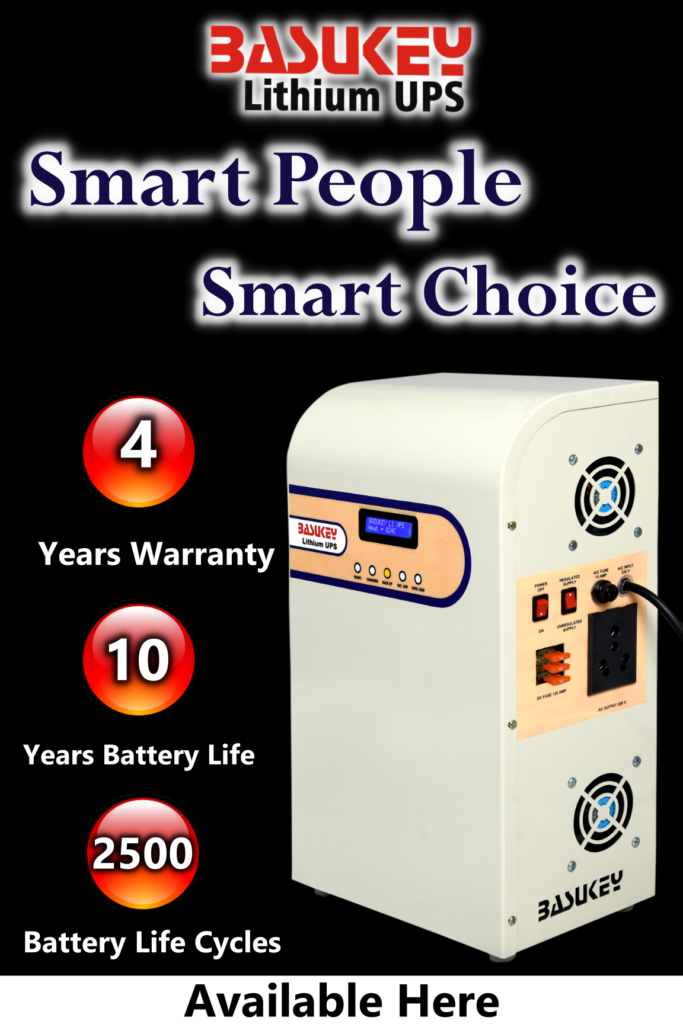Unlocking the Power of Lithium UPS Batteries for Uninterrupted Operations
Unlocking the Power of Lithium UPS Batteries for Uninterrupted Operations.In an increasingly connected and fast-paced world, up-time has become the cornerstone of operational success. Whether you’re managing IT infrastructure, healthcare equipment, or manufacturing lines, power interruptions are not just inconvenient—they can be disastrous. This is where Lithium-Ion UPS (Uninterruptible Power Supply) batteries are revolutionizing the game by offering a reliable, efficient, and future-proof solution for critical systems.
The Rise of Lithium-Ion in UPS Systems
Traditional lead-acid batteries have dominated the UPS market for decades, but their limitations have become more apparent as technology has advanced. Lithium-Ion UPS batteries are now becoming the go-to option due to their longevity, faster charging capabilities, and lower overall cost of ownership. These batteries are not just a backup—they are a key component in ensuring continuous, optimized operations.
Key Benefits of Lithium-Ion UPS Systems
- Extended Lifespan
One of the standout advantages of Lithium-Ion batteries is their 10-15 year lifespan, which far exceeds the 3-5 years typical of lead-acid batteries. This longevity reduces the need for frequent replacements, minimizing disruptions to your operations and lowering overall maintenance costs. - Faster Charging, Less Downtime
Speed is essential when it comes to recharging your power backup system. Lithium-Ion UPS batteries offer rapid recharge times, getting back to full power in just a fraction of the time it takes lead-acid batteries. This means your systems will be up and running again in hours, not days, reducing potential losses from downtime. - Higher Energy Efficiency
Lithium-Ion batteries have a higher depth of discharge, allowing you to utilize more of their stored energy before needing a recharge. This translates to greater energy efficiency, with more consistent power delivery during outages or fluctuations. - Compact Design
Space is often at a premium, especially in data centers, healthcare facilities, and industrial environments. Lithium-Ion batteries are 50-60% lighter and smaller than traditional UPS systems, allowing for more flexible installations and optimized use of physical space. - Temperature Tolerance
Lithium-Ion UPS batteries are more resistant to extreme temperatures, maintaining performance even in hot environments where lead-acid batteries tend to degrade. This ability to handle diverse climates makes them ideal for outdoor installations, remote facilities, and harsh industrial settings.
Unlocking New Applications with Lithium-Ion UPS
The versatility and performance of Lithium-Ion batteries unlock a range of applications across industries:
- Data Centers: With data traffic increasing exponentially, data centers demand continuous up-time. Lithium-Ion UPS provides long-lasting power support for critical servers, ensuring that data flows uninterrupted even during outages.
- Healthcare: Medical facilities require 24/7 power reliability for life-saving equipment like ventilators, imaging devices, and monitoring systems. Lithium-Ion UPS ensures that these critical systems remain operational, even during grid failures.
- Manufacturing & Industry: In automated factories, a power loss can halt production lines, leading to significant financial losses. A Lithium-Ion UPS delivers high reliability and quick recovery to ensure uninterrupted operations in these fast-paced environments.
- Telecom & Networking: Reliable power is essential for telecommunications infrastructure. Lithium-Ion UPS systems offer higher efficiency and lower maintenance for base stations, central offices, and network operations centers.

Sustainability and Lower Environmental Impact
As industries shift toward more sustainable practices, Lithium-Ion UPS offers a greener alternative to traditional battery solutions. Fewer replacements and higher energy efficiency mean lower resource consumption and a reduced environmental footprint over the system’s lifetime. Coupled with recycling advancements, Lithium-Ion technology plays a pivotal role in energy-efficient, eco-friendly power solutions.
The Future of Power Reliability
The advantages of Lithium-Ion UPS systems go beyond immediate operational efficiency. They provide a path toward future-proofing critical infrastructure. As the demand for seamless, round-the-clock operations increases in every sector, Lithium-Ion UPS offers the resilience and adaptability required to meet these modern challenges. Whether it’s integrating with renewable energy sources or scaling for expanding facilities, these systems are designed to evolve with your needs.
Conclusion: Powering the Future with Lithium-Ion UPS
The world doesn’t wait for downtime, and neither should your business. Lithium-Ion UPS batteries are more than just a backup; they are a strategic investment in the continuity and reliability of your operations. With longer lifespans, quicker recharge times, superior efficiency, and a smaller environmental footprint, they unlock the full potential of uninterrupted power. For businesses that rely on continuous up-time, switching to Lithium-Ion UPS isn’t just an upgrade—it’s a necessity for staying competitive in an increasingly power-dependent world.
Deployment Flexibility
- Scalability: Lithium-Ion UPS systems are easily scalable, making them ideal for both small businesses and large enterprise setups.
- Remote Monitoring: Many systems now offer cloud-based monitoring, allowing real-time tracking of battery health and performance from anywhere.
Performance Under Load
- Consistent Power Delivery: Lithium-Ion UPS systems provide stable voltage output, making them ideal for sensitive equipment like servers, medical devices, and industrial machinery.
- Higher Power Density: Delivers more power per unit of volume, ensuring space efficiency and optimal energy output.
Integration with Renewable Energy
- Hybrid Systems: Easily integrated with solar panels and other renewable energy sources, making Lithium-Ion UPS part of a green energy strategy.
- Energy Storage: Can serve as energy storage units for microgrids and off-grid applications, improving energy independence.
Regulatory Compliance
- Certifications: Lithium-Ion UPS systems meet global safety standards like IEC 62040-4, ensuring reliability and safety in critical environments.
Reduced Total Downtime
- Fewer Interruptions: With faster recharge and longer lifespan, these systems significantly reduce the total downtime of critical infrastructure over time.
This data expands on versatility, renewable integration, and regulatory aspects of Lithium-Ion UPS systems for a more diverse perspective.
Unlocking the Power of Lithium UPS Batteries for Uninterrupted Operations
